Photo by Bob Parker ©2008
Quote from “They Thought They Were Free” by Milton Mayer, University of Chicago Press, Chicago & London: 1955
Here is something to suggest that social, psychological, historical, and political processes are universal; time and place are essentially irrelevant except as how specific scenarios manifest at any given moment in history. Our present is no different than someone else’s past. Here is something that may jog one out of a current haze of denial.
Read on and make a comment about what you think at the bottom of the post.
“What no one seemed to notice…was the widening gap…between the government and the people…No one seemed to notice….What happened here was the gradual habituation of the people, little by little, to being governed by surprise; to receiving decisions deliberated in secret; believing that the situation was so complicated that the government had to act on information which the people could not understand, or so dangerous that, even if the people could understand it, it could not be released because of national security. And their sense of identification….their trust in him…. made it easier to widen this gap and reassured those who would otherwise have worried about it….This separation of government from people, this widening of the gap, took place so gradually and so insensibly, each step disguised (perhaps not even intentionally) as a temporary emergency measure or associated with true patriotic allegiance or with real social purposes. And all the crises and reforms (real reforms too) so occupied the people that they did not see the slow motion underneath, of the whole process of government growing remoter and remoter….one had no time to think. There was so much going on.”
“The dictatorship, and the whole process of its coming into being, was above all diverting. It provided an excuse not to think for people who did not want to think anyway…Most of us did not want to think about fundamental things and never had. There was no need to…we were decent people…so busy with continuous changes and ‘crises’ and so fascinated, yes, fascinated, by the machinations of the ‘national enemies’, without and within, that we had no time to think about these dreadful things that were growing little by little, all around us. Unconsciously, I suppose, we were grateful. Who wants to think?
…“Each step was so small, so inconsequential, so well explained or, on occasion, ‘regretted’, that, unless one were detached from the whole process from the beginning, unless one understood what the whole thing was in principle, what all these ‘little measures’…one no more saw it developing from day to day than a farmer in his field sees the corn growing. One day it is over his head…But one must foresee the end in order to resist, or even see, the beginnings. One must foresee the end clearly and certainly and how is this to be done, by ordinary men or even extraordinary men?
…“Each act, each occasion, is worse than the last. But only a little worse. You wait for the next and the next. You wait for one great shocking occasion, thinking that others, when such a shock comes, will join with you in resisting somehow. You don’t want to act, or even talk, alone; you don’t want to ‘go out of your way to make trouble’ Why not? — Well, you are not in the habit of doing it. And it is not just fear, fear of standing alone, that restrains you; it is also genuine uncertainty.
“Uncertainty is a very important factor, and, instead of decreasing as time goes on, it grows. Outside, in the streets, in the general community, ‘everyone’ is happy. One hears no protest, and certainly sees none….you speak privately to your colleagues, some of whom certainly feel as you do; but what do they say? They say, ‘It’s not so bad” or “You’re seeing things’ or “You’re and alarmist.’
“And you are an alarmist. You are saying that this must lead to this, and you can’t prove it. These are the beginnings, yes; but how do you know for sure when you don’t know the end, and how do you know, or even surmise the end? On the one hand, your enemies, the law, the regime, the Party, intimidate you. On the other hand, your colleagues pooh-pooh you as pessimistic or even neurotic…
“But your friends are fewer now. Some have drifted off…Informal groups become smaller, attendance drops off…in small gatherings of your oldest friends, you feel that you are talking to yourselves, that you are isolated from the reality of things. This weakens your confidence still further and serves as a further deterrent…if you are going to do anything, you must make an occasion to do it, and then you are obviously a troublemaker. So you wait, and you wait.
“But the one great shocking occasion, when tens of hundreds or thousands will join with you, never comes. That’s the difficulty…But of course this isn’t the way it happens. In between come all the hundreds of little steps, some of them imperceptible, each of them preparing you not to be shocked by the next. Step C is not so much worse than Step B, and, if you did not make a stand at Step B, why should you at Step C? And so on to Step D.
“And one day, too late, your principles, If you were ever sensible of them, all rush in upon you. The burden of self-deception has grown too heavy, and some minor incident…collapses it all at once…. The world you live in – your nation, your people – is not the world you were born in at all…But the spirit, which you never noticed because you made the lifelong mistake of identifying it with the forms, is changed. Now you live in a world of hate and fear, and the people who hate and fear do not even know it themselves; when everyone is transformed, no one is transformed.
“You have gone almost all the way yourself. Life is a continuing process, a flow, not a succession of acts and events at all. It has flowed to a new level, carrying you with it, without any effort on your part…. You have accepted tings you would not have accepted five years ago, a year ago, things that your father…could not have imagined.
“Suddenly it all comes down, all at once. You see what you are, what you have done, or, more accurately, what you haven’t done…You remember everything now, and your heart breaks. Too late. You are compromised beyond repair.
“What then? You must then shoot yourself. A few did. Or ‘adjust’ your principles…. Or learn to live the rest of your life with your shame.
“Once the war began… resistance, protest, criticism, complaint, all carried with them a multiplied likelihood of the greatest punishment. Mere lack of enthusiasm, or failure to show it in public, was ‘defeatism’. You assumed there were lists of those who would be ‘dealt with’ later after the victory… One the war began, the government could do anything ‘necessary’ to win it; so it was with…never dared undertake…until war and it’s ‘necessities’ gave them the knowledge that they could get away with it.”
(Mayer, pages 166-173)
found photograph, photographer unknown
found photograph, photographer unknown
“…when men who understand what is happening – the motion, that is, of history, not the reports of single events or developments – when such men do not object or protest, men who do not understand cannot be expected to…. And when, as the motion of history accelerates and those who don’t understand are crazed by fear…and made into a great ‘patriotic’ mob, will they understand then, when they did not before?…the concept of collective guilt is at bottom a semantic failure. What is really involved is collective shame. Collective shame may be possible, but it cannot be compelled. Shame is a state of being, guilt is a juridical fact. A passer-by cannot be guilty of failure to try to prevent a lynching. He can only be ashamed of not having done so.”
(Mayer p175, 181)
The previous extensive quotations are from:
“They Thought They Were Free: The Germans 1933-45”
By Milton Mayer, University of Chicago Press, Chicago & London: 1955
Milton Mayer, a Jewish journalist of German descent, spent a month trying to interview Adolph Hitler in 1935. Though he was “repelled” and “stricken” as a Jew by the rise of National Socialism, he was “fascinated” as a journalist at the same time. Mayer wanted to undertand the man, the movement, and the German people, because he was dissatisfied with the analyses of Nazism that existed up to that point in time. Mayer never interviewed Hitler in 1935. In 1955 he published “They Thought They Were Free: The Germans 1933-45”. In the Foreward to his book, he reports he never found the “average German”, as such a person did not exist. But he found 10 sufficiently different German citizens (who became “friends”) in the city of Kronenberg. Mayer conducted extensive interviews with each and did a remarkable job of humanizing an inhumane era in world history. The extensive quotations in this post about the insidiousness of the totalitarian process, are extracted directly from a conversation with a German Philologist colleague of his.
 Email This Post
Email This Post
 Print This Post
Print This Post 
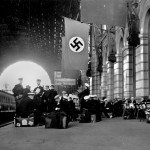
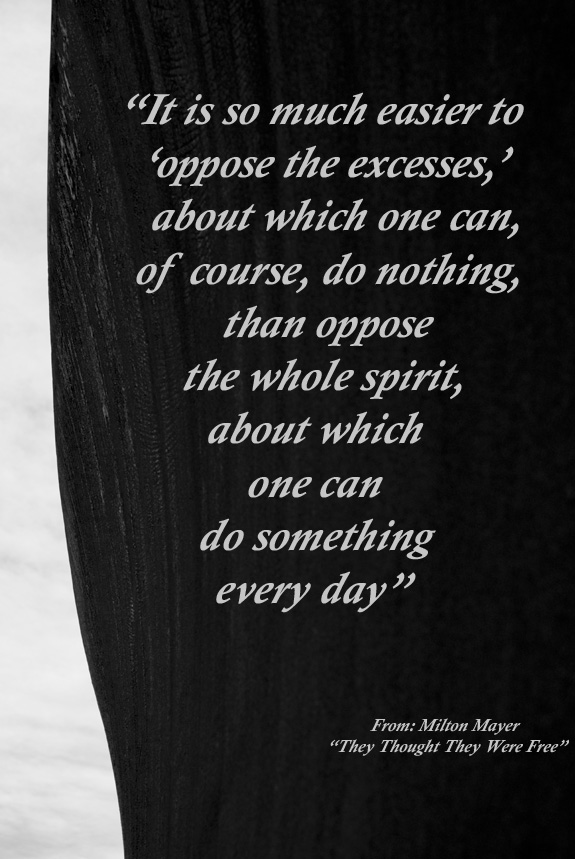
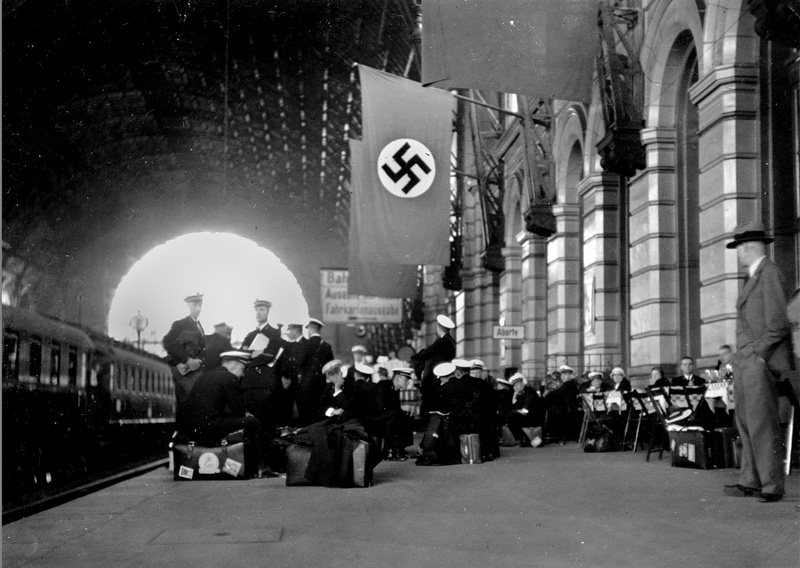
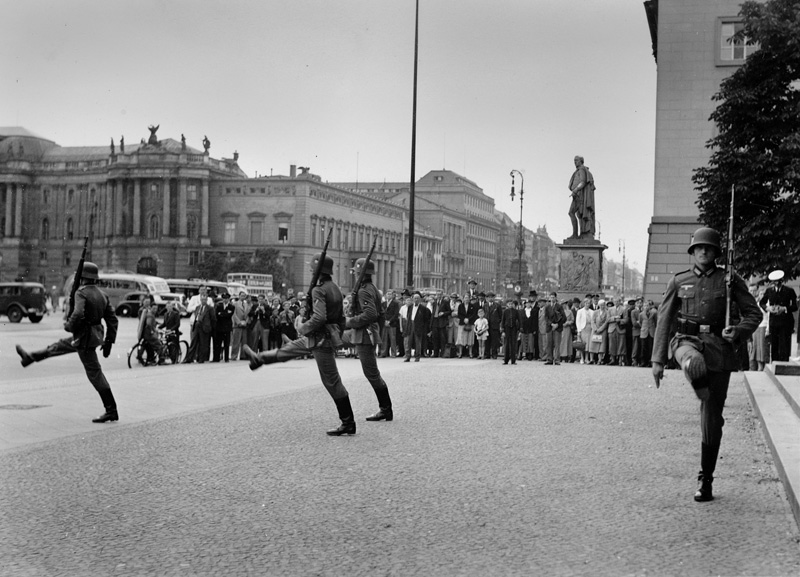

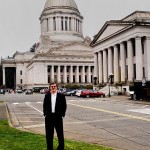



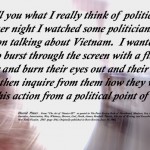



I have often thought about the insidious nature of gradual change with respect to our crumbling electoral process. First issues take a back seat to form and image, thanks to television. TV requires awesome amounts of money, leading to government of the rich, by the rich & for the rich.
We all know about the use of Florida troopers to keep people from the polls. Now many states have increasingly expensive identity systems to ferret out a handful of fraudulent voters, posing the spectre that thousands of elderly and poor citizens will be disenfranchised.
A partisan supreme court inappropriately injected itself into the Florida electoral process in 2000. This is common knowledge. Far fewer people know about the statistical analysis of voting irregularities in Ohio. The statisticians and authors of a scholarly book on the topic hypothesized that systematic efforts to steal the election by rigging voting machines would be concentrated in safe Republican districts, where unexpectedly high Bush counts would be less surprising, and less likely to lead to outrage. With this in mind, the authors compared actual vote tallies with exit polling in all Ohio precincts. In Democrat-dominated districts, there were were no differences between exit polls and official tallies. As predicted in Republican-dominated districts, the offical tallies for Bush were significantly higher than people reported when exiting the polling places. Combined with voters’ reports of seeing their votes erroneously register for Bush, and the inadequate numbers of voting machines provided in Democratic districts, I conclude that the 2004 election may have been stolen in Ohio.
I was shocked to hear in 2004 that the US does not have enough safeguards against voting irregularities to meet international standards. I would very much like to see our elections certified by international observers. We are losing our rights as citizens to choose our representatives by free and fair elections.
Hi Dr Parker. This is very timely and very scary for that reason.